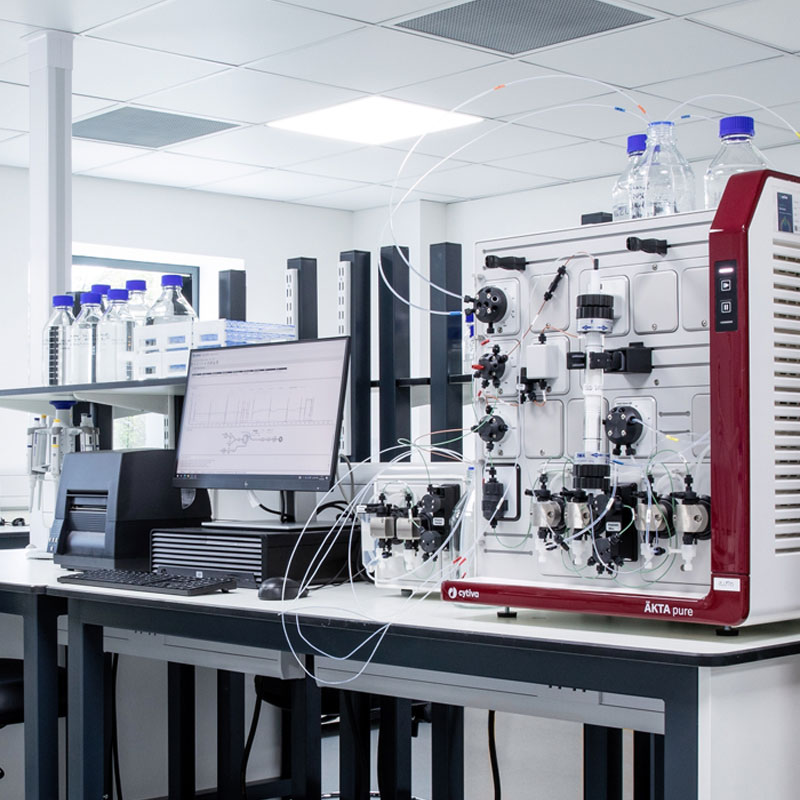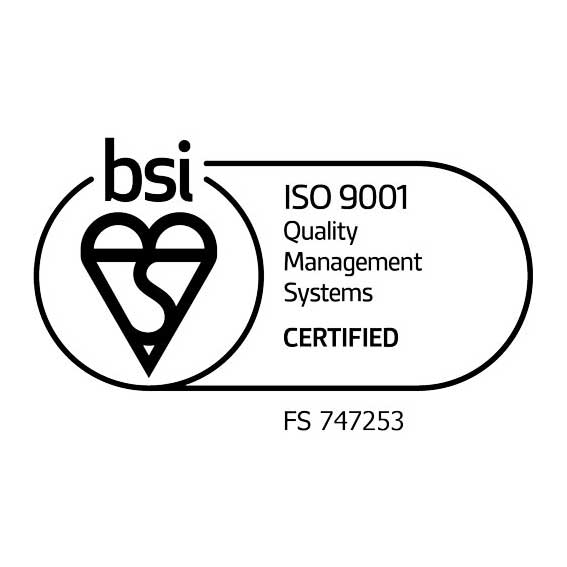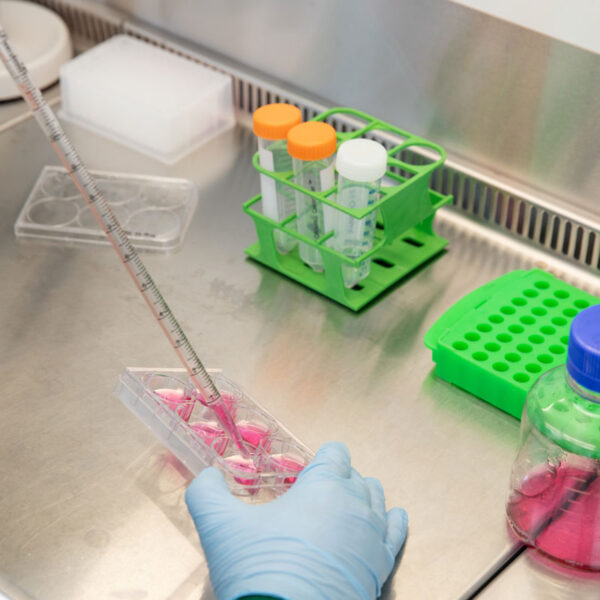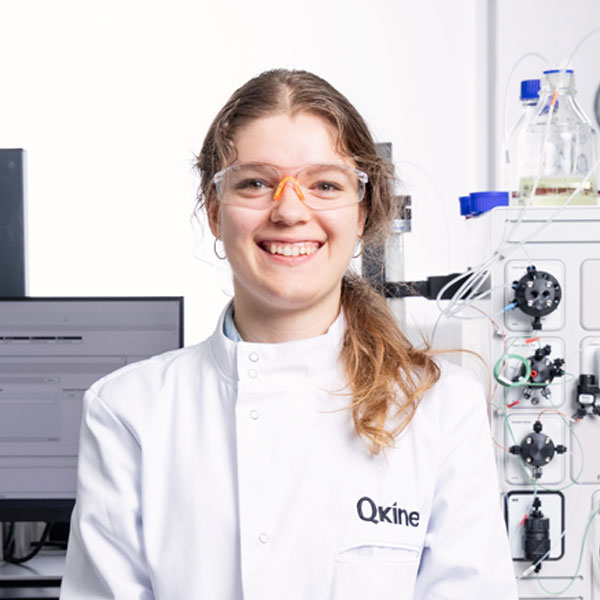Ensuring the highest purity in every lot
At Qkine our in-house R&D team test all our cytokines and growth factors to ensure their quality.
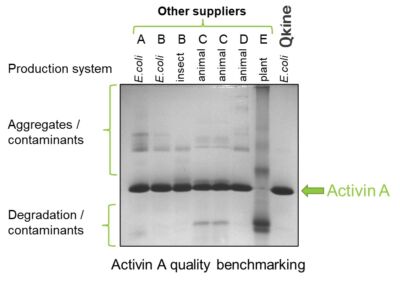
SDS-PAGE for detection of protein contaminants and degradation products demonstrates the purity of Qkine Activin A (Qk001). 5 µg per sample was mixed with an equivalent volume of non-reducing loading buffer and run on a 15 % w/v SDS-PAGE gel.
Why are your proteins stated 98% pure, what is the other 2%?
We believe our proteins are >99.9% pure. However, due to limitations of gel staining and densitometry, there is an inherent error of +2%, which means that we can only ever state the limit of the assay, or >98% purity. To ensure purity, we always run a gel with a large amount of protein (7 µg) to ensure that we can detect any other proteins, aggregates, or degradation products. The SDS-PAGE results are validated with mass spectrometry analysis for every lot of protein manufactured.
Getting the simple things right is important.
At Qkine, we are committed to raising the standard in bioactive protein manufacturing.
Our science team is here to help, please contact us if you have any questions at customerservice@qkine.com.
SDS-PAGE
SDS-PAGE (sodium dodecyl sulfate–polyacrylamide gel electrophoresis) is a method that separates proteins by mass. SDS is an ionic detergent that denatures and binds to proteins to make them uniformly negatively charged. This means that when an electronic current is applied to a polyacrylamide gel, the SDS-bound proteins will migrate down the gel towards the positively charged electrode, separated by size alone.
Proteins can be reduced before being run on an SDS-PAGE gel. In reducing conditions β-mercaptoethanol (β-ME or 2-ME) or dithiothreitol (DTT) is added; this reduces the disulfide bridges in proteins so that when they are run on the gel, they are better separated by size. Many of our growth factors are disulfide-linked dimers so running non-reduced proteins on the same gel as reduced proteins allows confirmation of the correct dimeric state.
As standard, we run all 3µg and 7µg of our recombinant proteins in reduced and non-reduced conditions to ensure there are no contaminants, aggregates or degradants.
Quantitative Densitometry
We also test our recombinant proteins by quantitative densitometry to ensure all our proteins are >98% pure.
